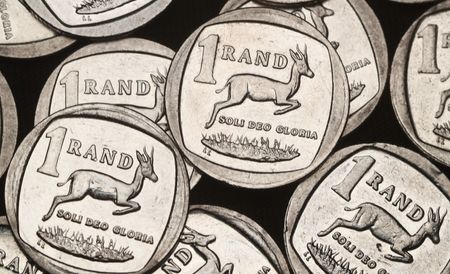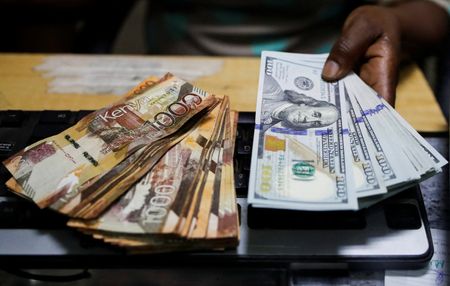By Rae Wee and Harry Robertson
SINGAPORE/LONDON (Reuters) -The yuan fell on Wednesday as a new U.S.-China trade war dented Chinese markets returning from an extended Lunar New Year break, while the yen jumped against the dollar as traders raised their bets on Bank of Japan rate hikes this year.
The dollar was last up 0.47% against the yuan to 7.272 in onshore trading, though its gains were capped by the People’s Bank of China setting a stronger-than-expected midpoint rate, around which the currency is allowed to trade in a 2% band.
Investors had watched the fixing for clues on whether Beijing would allow the currency to weaken to blunt the impact of new tariffs imposed by U.S. President Donald Trump.
China on Tuesday imposed tariffs on U.S. imports in a swift response, and Trump said the same day he is in no hurry to speak to Chinese President Xi Jinping to try to defuse the situation.
“China’s retaliation when it comes to the tariffs that have been announced and the investigations into Google… all in all it’s actually been relatively mild,” said Alvin Tan, head of Asia FX strategy at RBC Capital Markets.
“The U.S. and Trump have delayed the imposition of the tariffs on Mexico and Canada, so there is some expectation in the market that the US could do the same after Trump speaks with President Xi, although the date and time of that call is still very uncertain.”
The offshore yuan was marginally stronger at 7.276 per dollar; it fell to a record low of 7.3765 per dollar at the start of the week.
During Trump’s first term as president, the yuan was allowed to weaken more than 12% against the dollar to help make Chinese goods more competitive.
Volatility in other currencies continued to ease after a turbulent start to the week driven by impending 25% tariffs on Mexico and Canada which were halted for a month at the last moment following negotiations on border security.
The dollar index was last down 0.39% at 107.63, mainly weighed down by the yen, after rising as much as 1.3% on Monday to 109.88.
The euro and pound climbed around 0.22%.
YEN JUMP
The dollar fell to its lowest in six weeks at 152.92 per dollar as strong Japanese wage data and comments from a BOJ official hinting at further rate hikes boosted the country’s currency.
Data showed Japan’s December inflation-adjusted real wages rose 0.6% year-on-year thanks to a wintertime bonus bump, with government officials expressing optimism that wage hike momentum is growing.
That left traders ramping up bets of more BOJ rate hikes this year, with just over 30 basis points priced in by the year-end.
“The latest catalyst for yen buying was the much stronger wage data released today,” said Derek Halpenny, a senior foreign exchange strategist at MUFG.
“The data still argues that the BoJ could certainly hike on two more occasions this year, which is certainly not priced.”
Elsewhere, the U.S. dollar slipped against its Canadian counterpart as the latter continued to recover from Monday’s 22-year low.
The U.S. currency climbed against the Mexican peso but remained below the almost three-year high of 21.28 hit on Monday.
“I am actually quite surprised at the resilience of markets. Risk sentiment … has been quite positive despite all the tariff headlines and the resumption of the U.S.-China trade war,” said Carol Kong, a currency strategist at Commonwealth Bank of Australia.
(Reporting by Rae Wee in Singapore and Harry Robertson in London; Editing by Kim Coghill and Angus MacSwan)








